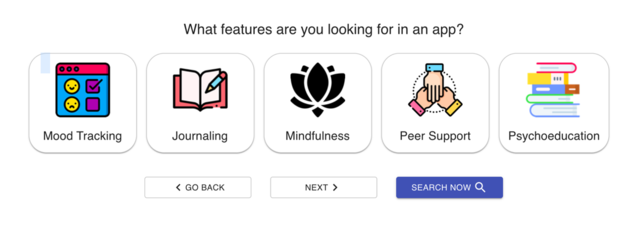Health
3 Ways College Counseling Centers Can Make Mental Health Apps Effective
Making mental health apps useful can be easy (and evidence based).
Posted October 19, 2020
This post was co-written with college mental health lead, Jennifer Melcher, of the BIDMC Division of Digital Psychiatry at BIDMC.
With COVID-19, college counseling centers are looking for new ways to help students and increase access to care. Telehealth offers a ready-to-use tool, and mental health apps are an increasingly popular option too. In this post, we outline three evidence-based tips to optimize use of apps. First, listen to students' perspectives; second, choose the right app for each student; and third, follow up on app use.
1. Listen to students’ wants and needs (and the evidence supporting them):
Students have certain expectations for their digital resources, including mental health apps. Our interviews with 100 college students revealed that these come down to a few key components that an app must have:
- Privacy protections – disclosing mental health information to an app can be nerve-wracking and students want to know exactly how an app is using their data.
- A clean user interface – students are accustomed to simple and clean user interfaces that make for easy navigation through their apps. A mental health app cannot be clunky or cluttered or it will be quickly abandoned.
- Credible and useful information – there are over 10,000 mental health apps on the app marketplace. Students know that anyone can create an app and have it appear legitimate but not have any founding in research or medicine. Students want apps supported by research or credible institutions so they can be sure that it is going to help them.
- Customization – students want an app to suit their particular needs and they do not want to waste time on features that they don’t use. Their mental health apps should allow them to choose what they see and what they don’t.
Read more about what students are looking for in an app in this new journal publication.

2. Choose the right tool.
Finding an app to fit the criteria of college students among the 10,000 possibilities is no small feat. Having a way to sort through the app marketplace is imperative. The American Psychiatric Association has published a framework designed to help individuals choose appropriate and safe digital health tools. This framework has been adapted into an app database called the mHealth Index and Navigation Database (MIND) wherein a user can apply filters to sort through hundreds of apps to find a good fit. Using the app database’s search function with a student can narrow down the possibilities and reveal suitable resources. The app database is maintained by a trained team of volunteers who analyze each app and answer a series of 105 objective questions about each app they evaluate. Each app’s evaluation is updated every 100 days.

3. Follow-up.
All health apps, including mental health apps, have notoriously low engagement. If users do not find the app to be a good fit, they are likely to abandon it after a few uses. Following up with students to see how they are faring with the app can help maintain engagement or identify when the search process should be repeated with different criteria to find a better match.
Read more about our research with digital tools for college students here.
References
Melcher J, Camacho E, Lagan S, Torous J. College student engagement with mental health apps: analysis of barriers to sustained use. Journal of American College Health. 2020 Oct 6:1-7.
Becker TD, Torous JB. Recent developments in digital mental health interventions for college and university students. Current Treatment Options in Psychiatry. 2019 Sep 15;6(3):210-20.
Lagan S, Aquino P, Emerson MR, Fortuna K, Walker R, Torous J. Actionable health app evaluation: translating expert frameworks into objective metrics. NPJ digital medicine. 2020 Jul 30;3(1):1-8.
Melcher J, Hays R, Torous J. Digital phenotyping for mental health of college students: a clinical review. Evidence-based mental health. 2020 Sep 30.
Melcher J, Torous J. Smartphone Apps for College Mental Health: A Concern for Privacy and Quality of Current Offerings. Psychiatric Services. 2020 Aug 12:appi-ps.


